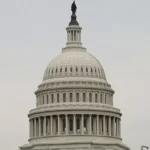In the shadow of the digital revolution, an insidious form of surveillance has crept into the American financial landscape, orchestrated by federal law enforcement agencies with the complicity of financial institutions.
The Erosion of Financial Privacy Under the Guise of Security
This covert operation, unveiled by the Committee on the Judiciary and the Select Subcommittee on the Weaponization of the Federal Government, exposes a disturbing breach of trust and an overreach of surveillance powers. Far from being a targeted investigation into criminal activities, this operation indiscriminately scrutinized the financial transactions of Americans, casting a wide net that ensnared individuals based on their political beliefs and activities rather than concrete evidence of wrongdoing.
The pretext for this sweeping surveillance was the events of January 6, 2021, which federal agencies, notably the FBI and FinCEN, exploited to justify an unprecedented intrusion into Americans' financial lives.
New documents obtained by the House Judiciary Select Subcommittee on the Weaponization of the Federal Government have revealed that the surveillance that was initially identified by the House Judiciary Committee in January was much broader than these early reports suggested. Reclaimthenet.org
This maneuver not only signifies a departure from the foundational principle that surveillance should be predicated on specific, credible evidence of criminal conduct but also marks a dangerous conflation of political ideology with potential criminality.
The documents unearthed during the investigation reveal a chilling reality: lawful transactions and political expressions were subjected to scrutiny, underlining a blatant disregard for the civil liberties that form the bedrock of American democracy.
A Legal Framework Outpaced by Technological Advancements
The legal scaffolding that purportedly safeguards Americans' financial privacy is, in reality, a porous structure, ill-equipped to contend with the complexities of the digital age. The Right to Financial Privacy Act and Section 314(a) of the USA Patriot Act, designed to protect financial transactions from unwarranted surveillance, have been manipulated in ways that erode their protective intentions.
The advent of digital banking and the voluminous data it generates have opened Pandora's box of surveillance opportunities, revealing a stark mismatch between outdated legal protections and the sophisticated capabilities of modern surveillance.
This legal inadequacy is further highlighted by the Supreme Court's stance in United States v. Miller (1976), which essentially strips customers of any reasonable expectation of privacy over their financial records held by banks. This ruling, anachronistic in the context of today's digital privacy expectations, lays bare the urgent need for legislative reform. It underscores the necessity of reimagining privacy protections in a manner that reflects the realities of digital finance and the legitimate privacy expectations of individuals in the 21st century.
The Imperative for Vigilant Oversight and Robust Reform
The revelations of this investigation serve as a clarion call for immediate and decisive action to rein in the unchecked expansion of government surveillance. The targeting of millions of Americans based on their political views or the exercise of their Second Amendment rights is not only a gross violation of privacy but also a threat to the very foundations of democratic society.
It raises profound concerns about the extent to which federal law enforcement and financial institutions have strayed from their duty to respect and protect the civil liberties of the citizenry.
The path forward must be paved with stringent oversight and comprehensive legislative reform. It is imperative that Congress, in collaboration with financial institutions and law enforcement agencies, undertakes a thorough examination of the current surveillance practices and their implications for civil liberties.
This examination must culminate in the enactment of legislation that fortifies the privacy rights of individuals against the encroachments of government surveillance, ensuring that financial transactions and political expressions are shielded from unwarranted scrutiny.
In crafting these reforms, it is crucial to strike a delicate balance between the legitimate needs of national security and the inviolable rights to privacy and free expression. This endeavor is not merely a legislative challenge but a moral imperative to uphold the principles of freedom and privacy that are integral to the American identity.
A Call to Action Against the Surveillance State
The intersection of federal surveillance and financial privacy presents a formidable challenge that demands immediate and thoughtful action. As the digital landscape continues to evolve, so too must our understanding of privacy and the measures necessary to protect it.
The investigation into the federal government's surveillance practices serves as a stark reminder of the vigilance required to safeguard the liberties that define the American way of life.
In responding to this challenge, we must be guided by a commitment to transparency, accountability, and the preservation of civil liberties. Only through concerted effort and unwavering dedication to these principles can we hope to curtail the overreach of government surveillance and ensure that the rights of all Americans are protected in the digital age.
The time to act is now, lest we find ourselves in a surveillance state where financial privacy is a relic of the past, and the freedoms we hold dear are but shadows under the watchful eyes of unseen watchers.

Lifelong bacon junkie. Lifelong internet fanatic. Hipster-friendly travel aficionado. Twitter lover. Avid food buff. Incurable travel trailblazer.













